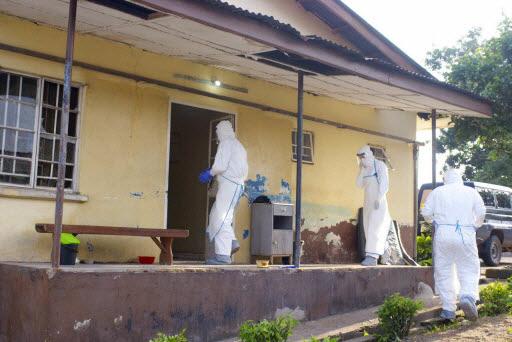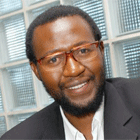Ebola – what West Africa could learn from Uganda – By Richard Dowden

 The Ebola plague in West Africa is worrying.
The Ebola plague in West Africa is worrying.
It is the largest and most extensive outbreak since the disease was first identified in 1976. That was in Congo and consequently outbreaks have occurred in DRC again in 1995 in 2003, and in Uganda and Sudan in 2000.
The total recorded deaths recorded in these outbreaks was – according to Wikipedia – 606. All these were in rural areas. Already in West Africa the outbreak has spread to towns and more than 1000 people have died. More than 2000 are infected and numbers are still rising
Three points are worth making.
First, if this disease had broken out in London, New York or Paris there would be a cure by now; I am sure someone will come up with a shocking comparison between what we spend on slimming drugs and what we spend on fatal diseases in Africa.
As it is we are faced with more images of dangerous, disease-ridden Africa unable to help itself.
Second, part of the blame for the slow response lies with WHO, but African governments in West Africa were also caught unprepared. In the case of Nigeria that is understandable, having seen the government’s response to Boko Haram. Neither the terrorists nor the virus has reached the door of the Abuja Hilton hotel and no one from the ruling elite has died. So what’s the wahala? Let’s get on with making money and winning next year’s election.
It is less understandable in the case of Guinea, Liberia and Sierra Leone where politicians are a little closer to the people. But they delayed raising the alarm and asking countries like Uganda, which had an outbreak of Ebola in the past, to come and help them with advice and expertise.
Third the outbreaks in Uganda and Congo were in rural areas while the outbreaks in West Africa are in towns.
That cuts both ways. Rural areas tend to follow traditional beliefs and are often less well-served by medical services and education. When disasters like Ebola strike, rural people are more likely to seek answers in traditional medicine, which is often effective, if unrefined. In the case of Ebola however no effective traditional medicine has been found. People in urban areas tend to be more literate and can be reached more easily, both physically and also by radio, TV and newspapers.
I will also suggest another factor which I have no evidence for except my own observation and contact with all the countries involved. East Africa is less held by its traditions than West Africa. I have always got the impression that – to put it crudely – West Africa is less ‘westernised’ than East Africa.
So when faced with Ebola in Liberia, Nigeria and Sierra Leone, people may have relied on western medicine as just one option among many. More importantly traditions and traditional medicine and practices have not been abandoned. This includes the rituals of death, the washing of dead bodies and the physical contact with the diseased after death.
In Uganda in 2000, during the Ebola outbreak there, the government immediately took command.
It had already taken on the battle against HIV-AIDS, being the first country to be hit by the pandemic. In the 1980s it was the first African government to speak out and tell the population the blunt truth. In simple and – in that society at that time – shocking language, the officials told the people what they had to do and not do. Health Ministry officials ordered people to abandon their dying relatives who would be removed to isolation and their dead bodies buried at a special site. Ugandans were separated from their sick relatives and forbidden to follow traditional and Christian rituals of death. They accepted it. Ebola was defeated.
Richard Dowden is Director of the Royal African Society and author of Africa; altered states, ordinary miracles. Follow Richard on twitter@DowdenAfrica





